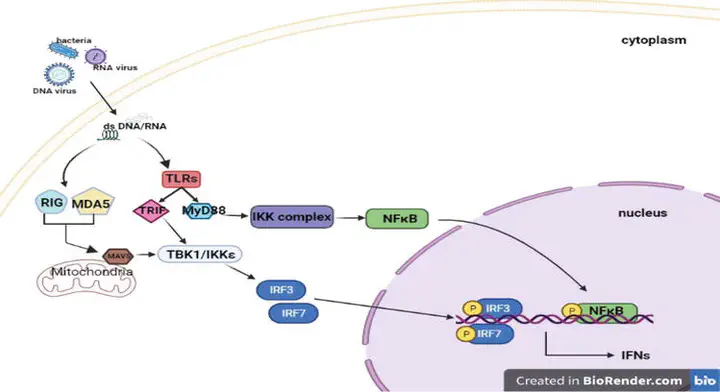Interferons Horizon Therapeutics

Abstract
Interferons (IFNs) are a family of multi-functional proteins, called cytokines, that are produced by immune cells such as leukocytes, natural killer (NK) cells, macrophages, fibroblasts, and epithelial cells. The minute amount of these α-helical glycoproteins, produced by mammalian cells, are firm components of the innate arm of the immune system providing rapid and broad protection against numerous types of invading pathogens. Interferons, from their discovery in the 19th century, have always held out a promise of important clinical utility first as an antiviral agent and more recently holding anti-inflammatory and regenerative effects for treating various neurological diseases such as multiple sclerosis, encephalopathies, Alzheimer’s disease (AD), Parkinson’s disease (PD), amyotrophic lateral sclerosis (ALS), etc. IFNs elicit anti-viral and anti-inflammatory properties by inducing transcription of multiple IFN stimulated genes (ISG), a response that is partly mediated by Interferon regulatory factors (IRFs). This chapter provides a brief introduction of the interferon system as well as an in-depth assessment of the interferon signature and the various assay procedures for synthesizing non-natural interferon analogs for structural analysis, which may be helpful in designing improved products and act as a diagnostic tool for neurodegenerative disorders.